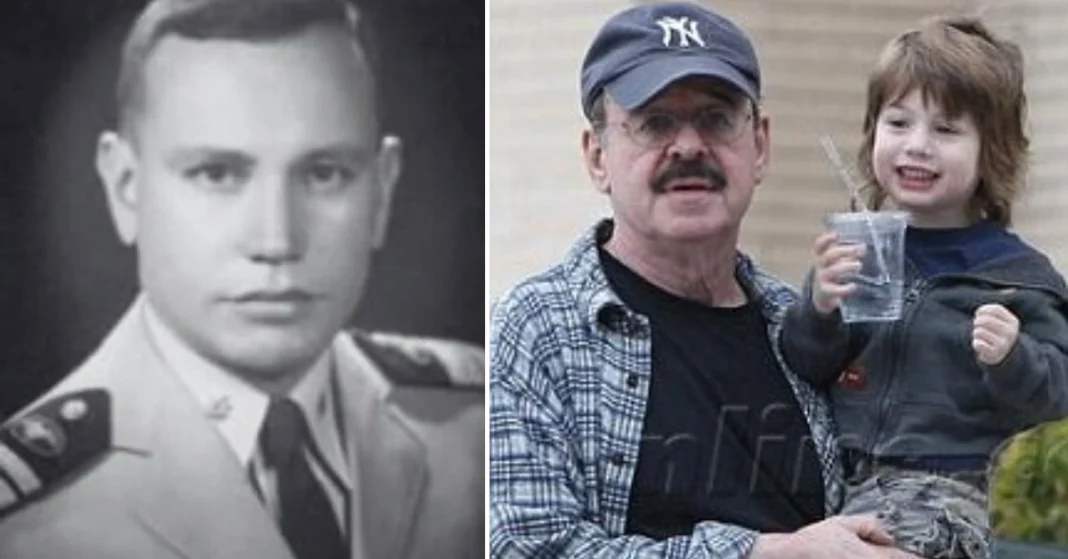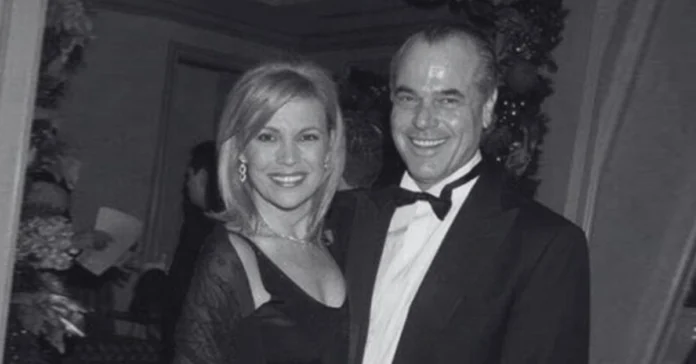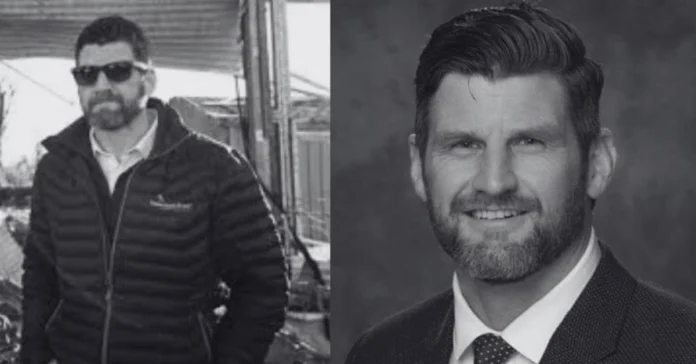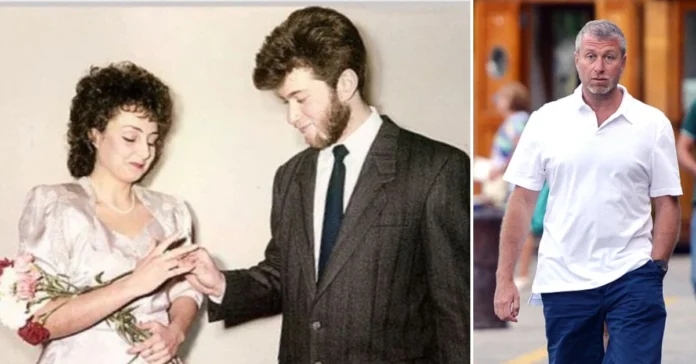Christina Aguilera has sold over 75 million records worldwide, but her father’s story remains largely untold. The man who gave the pop star her last name lived a life marked by military service, cultural pride, and family struggles that would shape one of music’s biggest voices.
Who Is Fausto Xavier Aguilera?
Fausto Xavier Aguilera was born on November 4, 1949, in the coastal city of Guayaquil, Ecuador. As a young immigrant who would later serve in the U.S. Army and father one of pop music’s most powerful voices, his life journey spans continents and cultures.
The son of working-class parents in Ecuador’s largest city, Fausto grew up speaking Spanish and carrying the traditions of his South American homeland. These roots would later play a crucial role in shaping his daughter’s artistic identity, even as their relationship grew strained.
Known formally as Fausto Wagner Xavier Aguilera, he carried multiple names throughout his life. This complexity in his identity mirrors the complicated legacy he would leave behind—a military veteran, an Ecuadorian immigrant, and, perhaps most notably, Christina Aguilera’s father.
Early Years in Guayaquil
Growing up in Guayaquil during the 1950s meant experiencing a rapidly changing Ecuador. The port city bustled with commerce and culture, offering young Fausto a window to the wider world. His childhood neighborhood echoed with the sounds of traditional Ecuadorian music and the Spanish language that would become part of his lasting gift to his daughters.
His family instilled strong values of hard work and perseverance. Like many Ecuadorian families of that era, the Aguileras faced economic challenges that would eventually push Fausto to seek opportunities beyond his homeland. The decision to leave Ecuador wasn’t easy, but the promise of a better life in America proved too strong to resist.
The cultural traditions of Guayaquil—from its cuisine to its music—stayed with Fausto throughout his life. He carried these memories across borders, eventually passing fragments of this heritage to his American-born children. This connection to Ecuador would later inspire Christina to explore her Latin roots in albums like “Mi Reflejo.”
Answering the Call: Military Service
Fausto’s path to American citizenship came through military service. After arriving in the United States, he enlisted in the U.S. Army, seeing it as both a duty and an opportunity. The military offered structure, purpose, and a clear path to building a life in his adopted country.
Rising to the rank of sergeant, Fausto served with distinction during his military career. His fellow soldiers knew him as disciplined and dedicated, traits that reflected both his Ecuadorian upbringing and his determination to succeed in America. The Army took him to various postings across the country, expanding his worldview far beyond what his childhood in Guayaquil could have offered.
Military life shaped Fausto in profound ways. The discipline and hierarchy of Army service influenced how he would later approach family life, sometimes with results that created more conflict than harmony. His time in uniform gave him pride and purpose, but it also introduced rigid expectations that would strain his relationships with those closest to him.
The skills and connections Fausto gained through military service helped establish his American life. Yet the very traits that made him a good soldier—strict discipline, unwavering authority, emotional distance—would later complicate his role as a father.
Love, Marriage & Family Life
During his military service, Fausto met Shelly Loraine Fidler, a young woman from Pennsylvania with German, Irish, Welsh, and Dutch ancestry. Their romance bloomed quickly, leading to marriage in 1980. The union represented a blend of cultures—his Latin American heritage meeting her European-American background.
Birth of Christina (Dec 18, 1980)
Just months after their wedding, Shelly gave birth to Christina María Aguilera on December 18, 1980, at Staten Island University Hospital in New York. Fausto’s first child arrived during a hopeful time in the marriage. He chose her middle name, María, honoring his Latin heritage and ensuring his daughter carried a piece of Ecuador in her identity.
The early months of Christina’s life seemed promising. Fausto worked to provide for his new family while Shelly cared for their infant daughter. Photos from this period show a young military family trying to build their American dream. But beneath the surface, tensions were already forming.
Rachel’s Arrival & Divorce (1986)
By 1986, the marriage had deteriorated significantly. Even as Shelly gave birth to their second daughter, Rachel, the relationship between Fausto and his wife had reached a breaking point. The couple divorced that same year, splitting the family apart when Christina was just six years old.
The divorce proceedings revealed deep problems in the marriage. Shelly would later describe instances of controlling behavior and emotional volatility from Fausto. These allegations would shadow his relationship with his daughters for decades. The split meant Fausto’s time with Christina and Rachel became limited to visits rather than daily involvement in their lives.
A Complicated Bond with Christina
The relationship between Fausto and his eldest daughter grew increasingly strained after the divorce. Christina has spoken publicly about experiencing physical and emotional abuse during her childhood, though she rarely goes into specific details. These early experiences would profoundly impact both her personal life and her artistic expression.
As Christina’s star began to rise in the late 1990s, the distance between father and daughter became public knowledge. She notably chose to use only her first and middle names professionally for a time, distancing herself from the Aguilera surname. This rejection of his name hurt Fausto deeply, representing a public denial of their connection.
Years passed with little to no contact between them. Christina channeled her pain into powerful performances and emotionally raw songs. Meanwhile, Fausto watched his daughter’s success from afar, unable to bridge the gap their troubled past had created.
In the mid-2000s, Fausto attempted reconciliation through a letter admitting his failures as a father. This written apology acknowledged the pain he had caused and expressed regret for his actions. While the letter didn’t erase the past, it represented an important step toward healing. Christina has mentioned this gesture in interviews, though their relationship never fully recovered.
Cultural Legacy & Influence on Christina
Despite their struggles, Fausto’s Ecuadorian heritage profoundly influenced Christina’s artistic journey. Growing up hearing Spanish at home, even in limited doses, planted seeds that would later bloom in her music career. The Latin rhythms and passionate expression characteristic of Ecuadorian culture found their way into her vocal style.
Christina’s 2000 Spanish-language album “Mi Reflejo” represented a direct embrace of her father’s cultural legacy. The project allowed her to explore the Latin roots Fausto had given her, even as their relationship remained fractured. Songs like “Genio Atrapado” and “Pero Me Acuerdo de Ti” showcased how his heritage had become part of her artistic DNA.
In interviews, Christina has acknowledged this complex dynamic, rejecting the man while embracing the culture he represented. She learned to separate Fausto’s failings from the rich Ecuadorian heritage he passed down. This ability to find beauty in a painful legacy speaks to both her artistic maturity and her personal growth.
The Spanish language itself became a form of reconciliation with her roots. While Fausto couldn’t give his daughter stability or consistent love, he did give her a connection to millions of Spanish-speaking fans worldwide. This cultural bridge has enriched her career in ways neither of them could have anticipated.
Later Years & Public Perception
Confusion surrounds Fausto’s later years and current status. Some sources suggest he passed away in 2005, while others indicate he may still be living quietly out of the public eye. This uncertainty reflects the distance between Fausto and his famous daughter—even basic facts about his life remain unclear to the public.
What we do know is that Fausto largely stayed out of the spotlight as Christina’s fame grew. Unlike some celebrity parents who seek attention through their children’s success, he maintained a low profile. Whether this came from respect for Christina’s wishes or his desire for privacy remains unknown.
Public perception of Fausto remains complicated. Some see him as a troubled man who failed his family, while others view him as someone who struggled with the challenges of immigrant life and military service. The truth likely lies somewhere between these extremes—a flawed human being whose actions had lasting consequences.
His military service record stands in contrast to his failures as a father, showing someone capable of discipline and duty in one area of life while struggling profoundly in another. This duality makes Fausto a complex figure rather than a simple villain in Christina’s story.
Reflecting on Fausto’s Legacy
“I’ve been fighting for my last name my whole life,” Christina once said, capturing the complicated relationship with her father’s legacy. This quote reveals how Fausto’s influence extends beyond their relationship into questions of identity and belonging.
His legacy lives on in multiple ways. The Aguilera name, which Christina ultimately chose to keep professionally, connects her to both Ecuadorian culture and her complicated family history. Every time she performs “Beautiful” or “Fighter,” songs that deal with overcoming pain and finding strength, echoes of their difficult relationship can be heard.
For Rachel, Christina’s younger sister, Fausto’s legacy likely carries different weight. Growing up outside the spotlight allowed her more privacy in processing their family dynamics. The two sisters share this complex inheritance—a father who gave them life and cultural richness but also deep emotional wounds.
Fausto Xavier Aguilera’s story serves as a reminder that people can be both harmful and influential, absent and present, destructive and foundational. His journey from Guayaquil to the U.S. Army to fatherhood created ripples that continue shaping one of music’s most powerful voices. While their personal relationship may never have healed fully, his influence—both positive and negative—remains woven into Christina Aguilera’s life and art.
The man who started life in Ecuador and served his adopted country leaves behind a complex legacy. Through Christina’s music, millions have experienced the passion and pain that marked the Aguilera family story. In the end, Fausto’s greatest contribution may be the strength his daughter found in overcoming their difficult past, transforming personal pain into artistic triumph.




